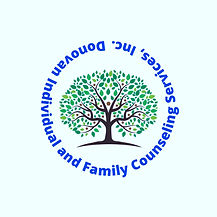
About Scott Donovan,
Marriage and Family Therapist
California License # 101211
Texas License # 204685
Personalized Attention for All Your Needs
I currently see clients through telehealth in Texas and telehealth and in-person in California.
I'm Scott Donovan, and I'm here to stand by you as you navigate through life's challenges. Whether you're contending with depression, anxiety, PTSD, trauma, or relationship issues, if you're prepared to embark on a journey of positive change and committed to establishing and achieving weekly goals through therapy, we could be a great match.
I specialize in individual, family, couples, and group therapy. I provide telehealth sessions for clients in Texas and offer both telehealth and in-person sessions for clients in California. I accept IEHP (California), Lyra (California and Texas), and cash payments (California and Texas).
Isn't it time to embrace the changes you've been yearning for? Take that crucial first step towards a brighter tomorrow by reaching out to schedule a session with me.
Scott Donovan is a Licensed Marriage and Family Therapist who is passionate about helping individuals navigate the complexities of trauma and emotional healing.
With extensive training in Eye Movement Desensitization and Reprocessing (EMDR) therapy, Scott specializes in a compassionate, trauma-informed approach to therapy.
Recognizing that each person’s journey is unique, Scott creates a safe, supportive environment where clients can explore their experiences and emotions without judgment. His empathetic approach fosters trust, enabling clients to confront and process their trauma at their own pace.
Scott believes in the power of resilience and works collaboratively with clients to develop personalized strategies for healing and growth. He draws on a variety of therapeutic modalities, tailoring his approach to each client's needs.
Whether you’re dealing with past trauma, anxiety, or relationship challenges, Scott is dedicated to guiding you on your path toward healing and empowerment. Together, you can unlock the potential for a more fulfilling and balanced life.
I am compassionate and understanding. If you are struggling with something and are willing to make a change and work on it, let's discuss whether we are a good fit. Send us an email.
I look forward to hearing from you and hope that we can work towards your goals for something different.
If this sounds like you, take the next step and contact us.
I look forward to hearing from you and possibly working with you.
Scott

About Sarah Castro, ASW
Associate Clinical Social Worker, License #134266
Supervised by Scott Donovan, LMFT, License # 101211
Personalized Attention for All Your Needs
Meet Sarah Castro, ASWAssociate Clinical Social Worker, License #134266
I currently see clients through telehealth in California.
Sarah is a compassionate Associate Clinical Social Worker dedicated to helping children, teens, adults, and families across California heal from trauma, manage anxiety, and overcome depression. She understands how overwhelming it can feel to carry emotional pain alone—and she offers a safe, supportive space where clients can begin to feel understood, grounded, and empowered.
Sarah specializes in working with individuals navigating trauma-related stress, persistent worry, low mood, and life transitions. Using evidence-based approaches, including Cognitive Behavioral Therapy (CBT), she helps clients identify unhelpful thought patterns, build practical coping skills, and develop healthier ways of responding to difficult emotions.
Her approach is trauma-informed, collaborative, and strengths-based. Sarah moves at a pace that feels safe for each client, focusing on building resilience, restoring confidence, and creating meaningful, lasting change. Whether you’re struggling with anxiety that won’t quiet down, depression that feels heavy and isolating, or past experiences that continue to impact your present, Sarah is committed to helping you move toward healing with clarity and hope.
Therapy with Sarah is more than symptom management—it’s about rediscovering your strength and building a life that feels balanced, connected, and fulfilling. She accepts clients who pay with IEHP and cash.
Our current rates for therapy services provided by Associates are as follows:
Individual Therapy: $125.00 for a 53-minute session
Couples/Family Therapy: $150.00 for a 50-minute session
Initial intake assessment: $125.00 for a 53-minute session



